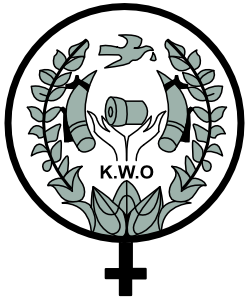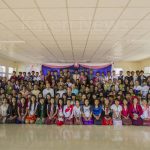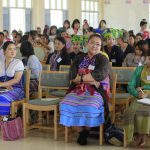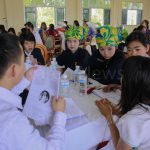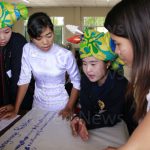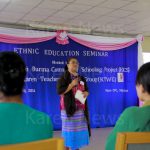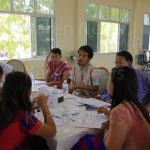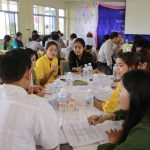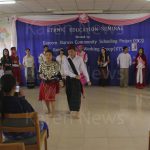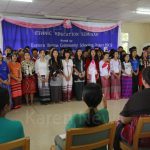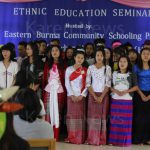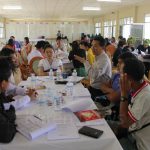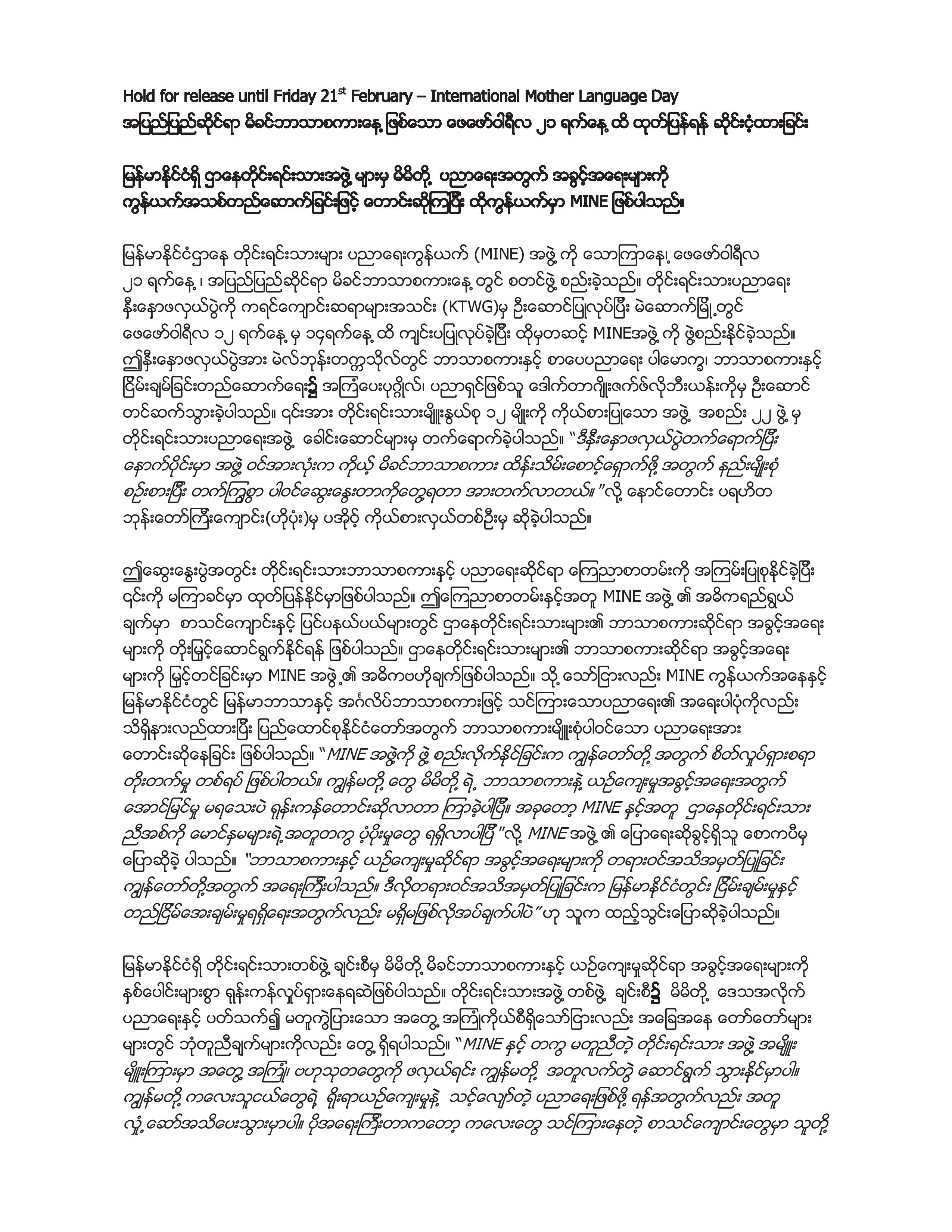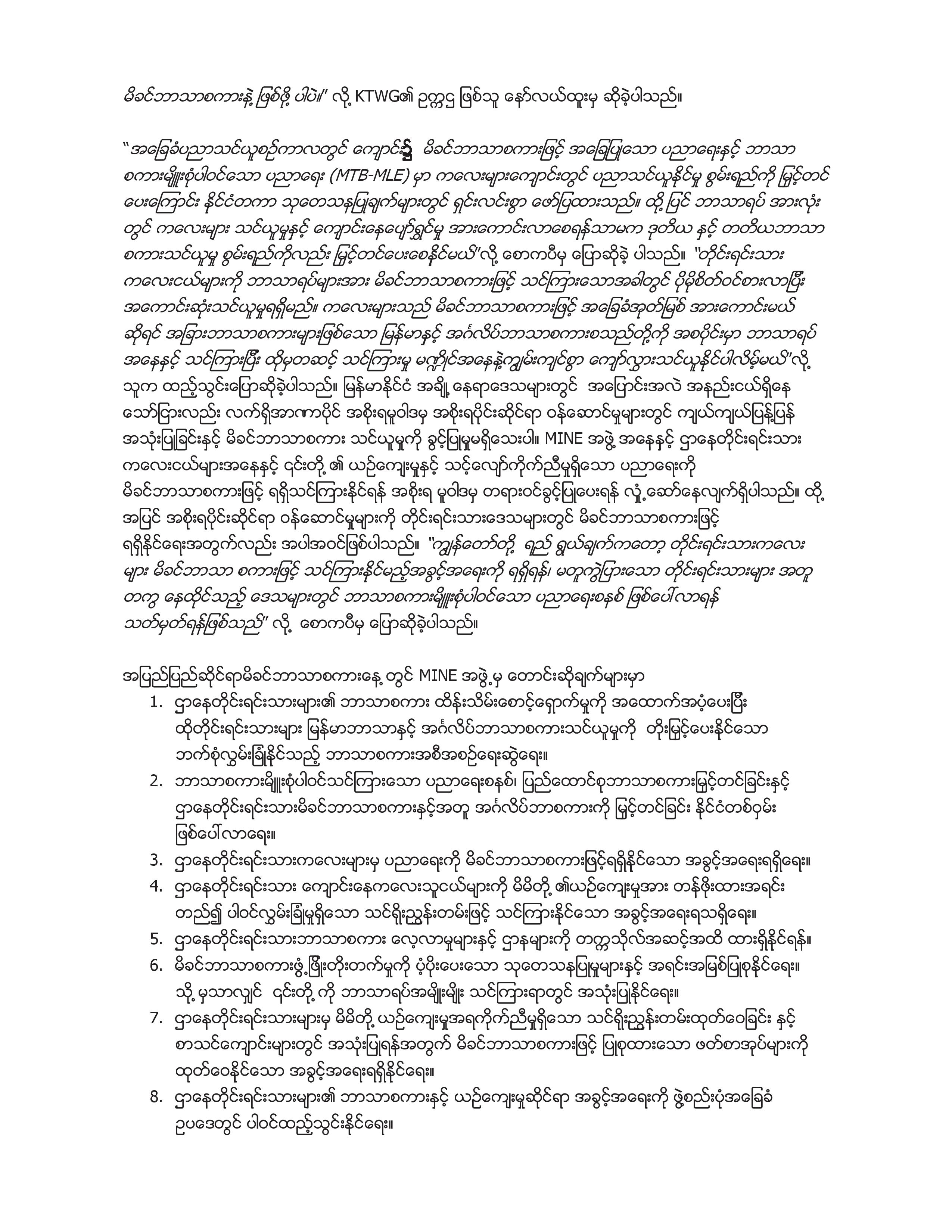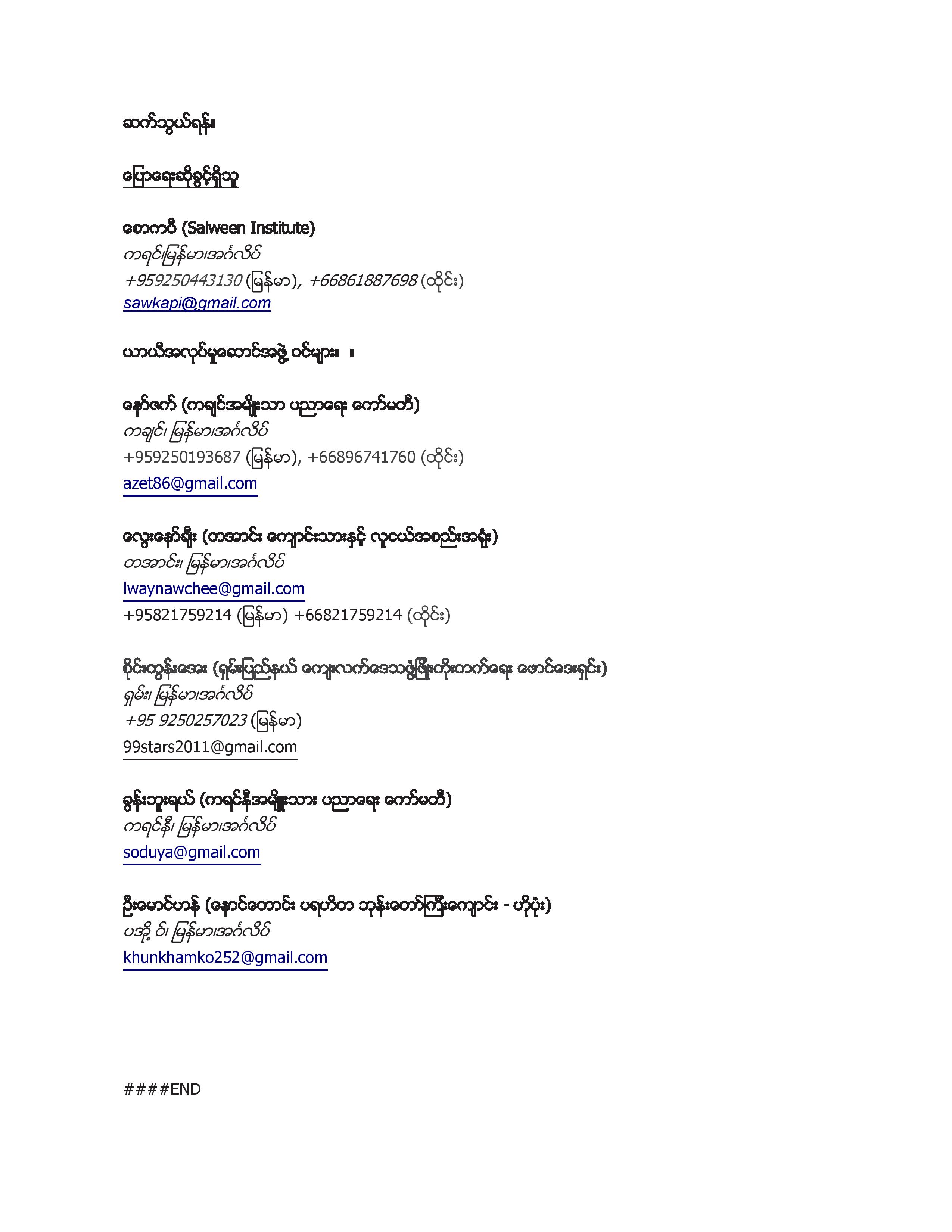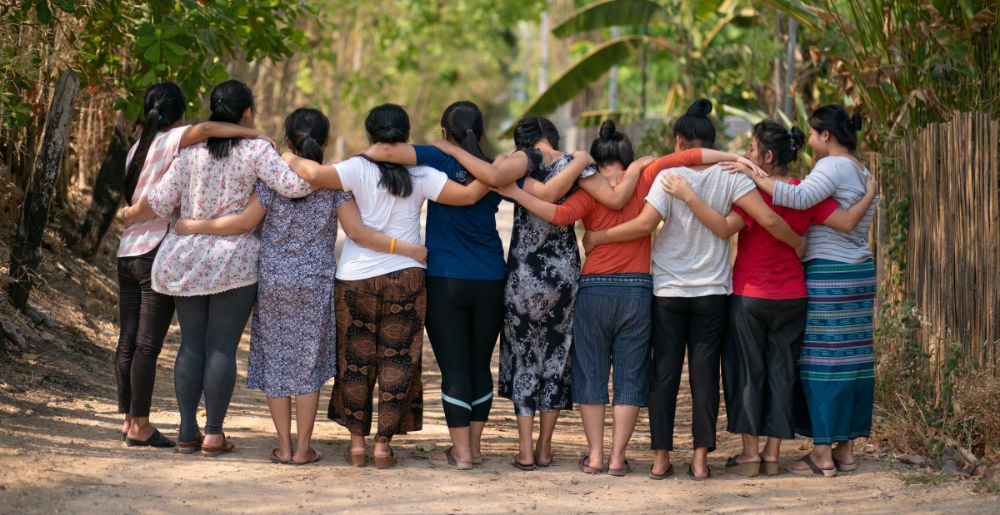- MINE Group
- MINE Opening
- Discussions at MINE Launch
- Discussions at MINE Launch
- MINE Ler Htu
- Discussions at MINE Lauch
- Discussions at MINE Launch
- MINE Opening
- MINE Opening
- MINE Opening
- Discussions at MINE Launch
Friday 21st February – International Mother Language Day
“Its MINE”: Indigenous groups claim their rights through new network for education in Myanmar. The Myanmar/Burma Indigenous Network for Education (MINE) was launched on Friday 21st February, International Mother language day. An ethnic education seminar hosted by the Karen Teacher Working Group (KTWG) from 12 – 14 February led to the creation of MINE. The seminar was facilitated by Dr Joseph Lo Bianco, Professor of Language and Literacy Education at the University of Melbourne and a consultant and expert in Language and Peace building. Ethnic education leaders from 22 organisations attended, with 12 different ethnic groups represented. “After attending this seminar, I am very encouraged by the level of enthusiasm of the group and the cooperation and participation in exploring different ways to preserve and promote our mother tongue languages” said a Pa-oh representative from the Naung Taung Parahita Monestary (Hopone).
A Declaration of Ethnic Language and Education was drafted during the meeting and will be released shortly. The Declaration and a key objective of MINE is promoting Indigenous language rights in schools and beyond. Although the promotion of Indigenous language rights is at the heart of MINE, the network also recognises the importance of education in Myanmar and English languages and is seeking a multilingual language policy for the Union. “MINE is an exciting development for us. We have struggled for our language and culture rights for so long and without success. Now with MINE we have the support of our other Indigenous brothers and sister” said MINE spokesperson, Saw Kapi. “The recognition of our language and cultural rights is important to us, and is also essential if there is going to be peace and stability in Burma,” he added.
Individual ethnic groups have been struggling for their language and cultural rights for many years in Burma. Each group has a different experience of education, unique to their area, but there are also many common experiences amongst the groups. “With MINE we can share our experiences and work together across different Indigenous groups. We will work together to advocate for culturally appropriate education for our children. Most importantly, schooling for our children in their own languages.” said Naw Ler Htu, KTWG Chairperson. “International research clearly shows that Mother Tongue Based, Multi-Lingual Education (MTB-MLE) improves children’s learning in school. It promotes better learning across all school subjects, keeps children in school and improves the quality of second and third language acquisition” said Saw Kapi. “Children learn best in all subjects and are more engaged when taught in their mother tongue. If children have a strong base in their own language, they can master other languages, such as Burmese and English, when these are introduced, initially as subjects and later as languages of instruction” he added. Although there are some small changes happening in certain parts of the country, the current official government policy does not allow learning in the mother tongue or use of mother tongue in the delivery of government services.
MINE is advocating for the official government policy to allow indigenous children to access culturally appropriate education in their own mother tongue. MINE also advocates for access to government services in mother tongue language in ethnic areas. “Our aim is to ensure that Indigenous school children have the right to mother tongue education and to establish a multilingual education system in our country, where diverse ethnic nationalities co-exist” Saw Kapi said.
On International Mother Language Day, MINE is calling for:
- Comprehensive language planning to support preservation of Indigenous languages and improve learning of Burmese and English by indigenous people.
- A multilingual education system in our country, promoting the language of the Union and English along with the Indigenous group’s mother tongue.
- Indigenous children to have the right to education in their mother tongue.
- The right for ethnic school children to be taught using an inclusive curriculum, which values their own culture.
- The right for Indigenous people to produce their own culturally appropriate curriculums and to produce texts in their own language for use in schools.
- Indigenous language studies and departments to be available at the University level.
- Research and resources to help develop mother languages so they can be used to teach a variety of subjects.
- The inclusion of Indigenous language and culture rights in the Constitution.
Contact:
Spokesperson
Saw Kapi (Salween Institute)
Karen, Burmese, English
+959250443130 (Burma), +66861887698 (Thailand)
[email protected]
Other MINE Temporary Working Group Members:
Naw Zet (Kachin National Education Committee)
Kachin, Burmese, English
+959250193687 (Burma), +66896741760 (Thailand)
[email protected]
Lway Naw Chee (Ta’ang Student and Youth Organisation)
Ta’ang, Burmese, English
[email protected]
+95821759214 (Burma), +66821759214 (Thailand)
Naw K’Nyaw Paw (Karen Women’s Organisation)
Karen, English
+66810295503 (Thailand)
[email protected]
Sai Tun Aye (Rural Development Foundation for Shan State)
Shan, Burmese, English
[email protected]
Khun Bu Reh (Karenni National Education Committee)
Karenni, Burmese, English
[email protected]
U Maung Han (Naung Taung Parahita Monestary – Hopone)
Pa-oh, Burmese, English
[email protected]
